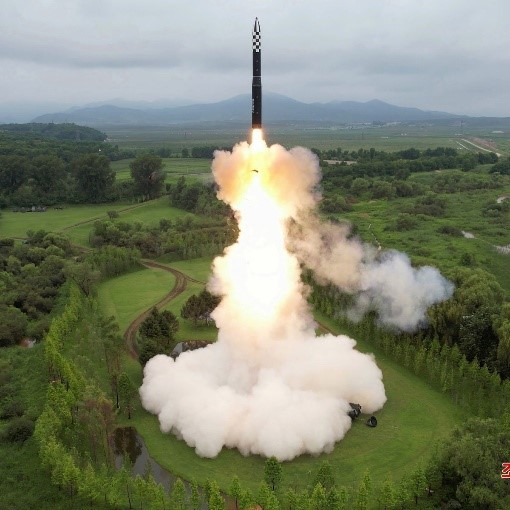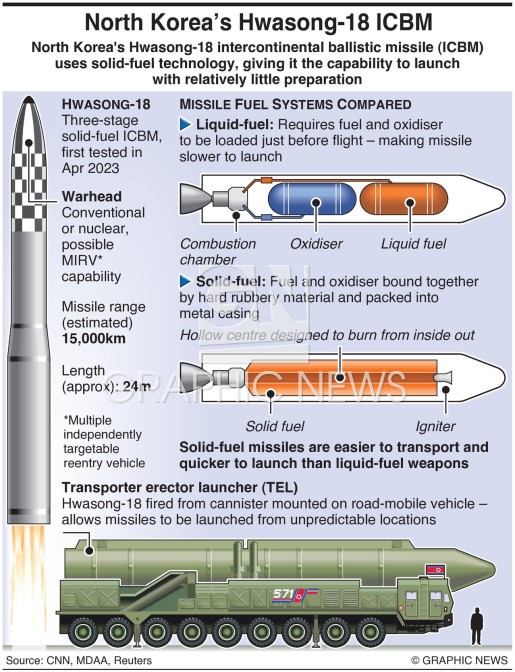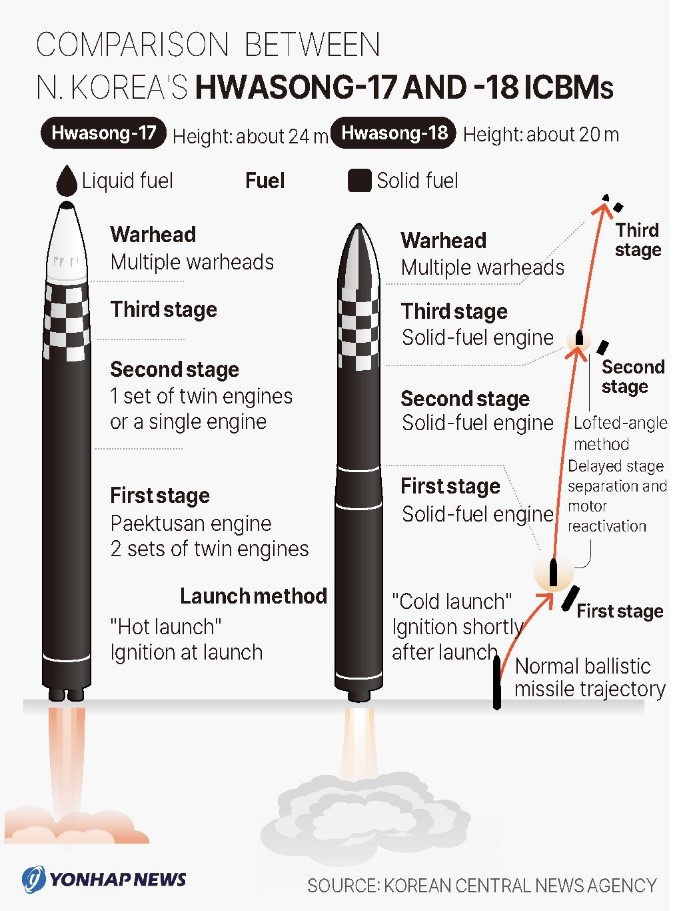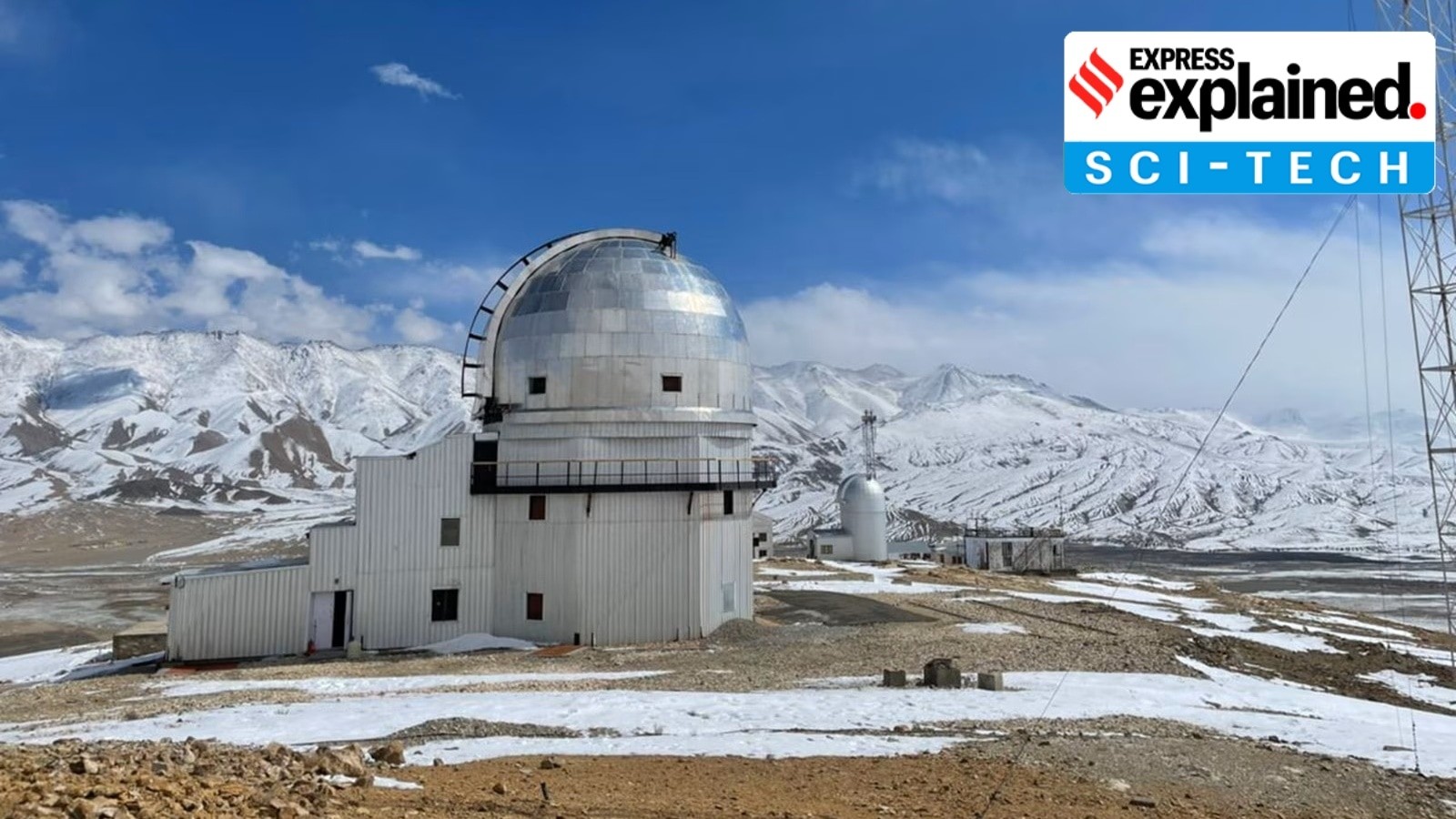




Disclaimer: Copyright infringement not intended.
Context
Hwasong-18
About
|
ICBM An intercontinental ballistic missile (ICBM) is a ballistic missile with a range greater than 5,500 kilometers primarily designed for nuclear weapons delivery. They differ from other forms of ballistic missiles by their much greater range and payload capacity. The first ICBMs were deployed by the Soviet Union in 1958; the United States followed the next year and China some 20 years later. |


|
SOLID-FUELED MISSILES Solid-fueled missiles use a solid propellant composed of fuel and oxidizer that is tightly packed into the rocket's motor. This mixture is stable and can be stored for long periods without significant degradation. Solid-fueled ICBMs have shorter launch preparation times because the propellant is already inside the missile, making them more responsive to sudden launch orders. Solid-fueled ICBMs are typically more mobile, as they can be easily transported on vehicles without the need for additional fueling equipment. THREE-STAGE ICBM A three-stage ICBM is a type of ICBM that has three stages, or sections, that are used to propel the missile to its target. 1.The first stage is the boost stage, which is responsible for lifting the missile off the ground and accelerating it to a high velocity. The boost stage typically uses a liquid-fueled rocket engine, which provides a high amount of thrust for a short period of time. Once the missile has reached a certain altitude and speed, the first stage falls away and the midcourse stage takes over. 2.The midcourse stage is responsible for guiding the missile toward its target, using a combination of internal guidance systems and external tracking systems. 3.The final stage of the missile's flight is the terminal stage, which is responsible for ensuring that the missile reaches its target with precision. The terminal stage typically uses a small rocket engine, which can make fine adjustments to the missile's trajectory to ensure that it hits its target. |
READ ABOUT THE BASICS OF MISSILES: https://www.iasgyan.in/blogs/the-basics-of-missiles
|
PRACTICE QUESTION Q. Consider the following statements. 1. A hypersonic cruise missile travels at a speed of more than 5 Mach. 2. A ramjet engine does not have any turbines, unlike turbojet engines. 3. In a strategic warhead, radioactive materials are present and when triggered they exhibit huge radio activity that can wipe out even cities. 4. Terrain Comparison (TERCOM) used by cruise missiles uses sensitive altimeters to measure the profile of the ground directly below and checks the result against stored information. Which of the above statements is/are incorrect? (a) 1 only (b) 2 and 3 only (c) 4 only (d) None of the above. Correct Answer: (d) None of the above. THE BASICS OF MISSILES: https://www.iasgyan.in/blogs/the-basics-of-missiles |






© 2026 iasgyan. All right reserved